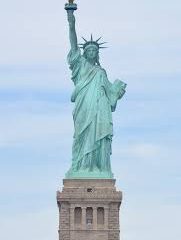Exploring John Major’s Political Legacy

Introduction
John Major, the former Prime Minister of the United Kingdom, served from 1990 to 1997, succeeding Margaret Thatcher and leading the Conservative Party during a tumultuous period in British politics. His leadership, which included challenges such as economic recession, party divisions, and the Northern Ireland peace process, is pivotal in understanding the evolution of modern UK politics.
The Economic Context
John Major took office at a time when the UK was grappling with significant economic issues, including high unemployment and inflation. His government implemented policies aimed at stabilising the economy, which were marked by the controversial decision to pull the UK out of the European Exchange Rate Mechanism in 1992 — a move that was initially met with criticism but later credited for helping the economy recover.
Political Challenges
Major’s tenure was also marred by internal divisions within the Conservative Party, particularly over issues related to Europe. The emergence of the ‘Euro-sceptic’ faction created challenges for Major’s leadership, leading to a series of parliamentary defeats that weakened his government. The conflicts culminated in a narrow victory for Major in the 1992 General Election, allowing him to continue as Prime Minister, but the tension remained a defining feature of his administration.
Achievements in Foreign Policy
Despite domestic struggles, Major made notable contributions to foreign policy. His government was instrumental in the Northern Ireland peace process, participating in negotiations that laid the groundwork for the Good Friday Agreement of 1998. This achievement has been acknowledged as a significant step towards peace in a region that had witnessed decades of conflict.
Post-Political Career
Following his time in office, Major has remained active in public life, sharing his insights on politics and governance. He has authored books reflecting on his experiences and has participated in various charitable activities and advisory roles. Major’s reflections on Brexit and the future of the Conservative Party exemplify his continued relevance in British political discourse.
Conclusion
John Major’s legacy is complex, characterised by his economic challenges, party strife, and achievements in foreign relations. As the UK continues to navigate the implications of Brexit and evolving political landscapes, Major’s experiences and insights provide valuable perspectives on leadership in times of uncertainty. His commitment to the peace process in Northern Ireland remains a cornerstone of his legacy, highlighting the significant impact of political leadership on societal issues. For readers, understanding Major’s tenure offers lessons on resilience and the multifaceted nature of governance.









